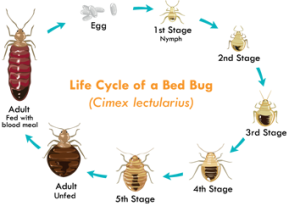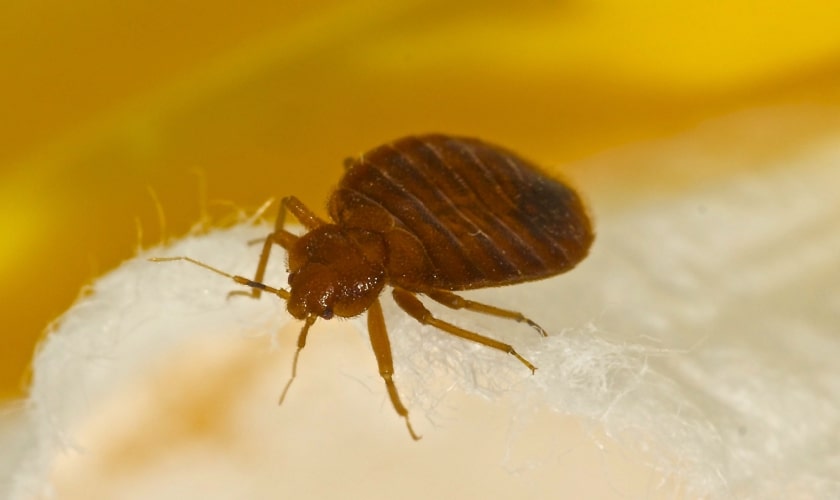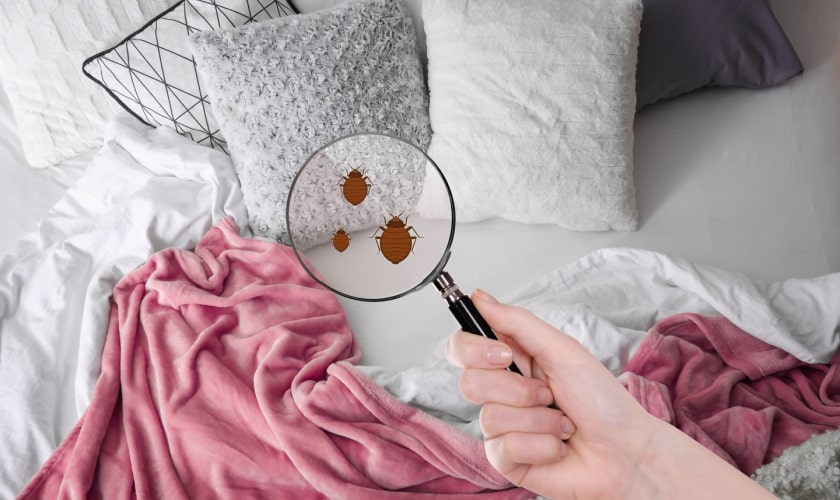Kings Bed Pest Exterminator Cincinnati: Pro Bug Solutions
Kings Bed Pest Exterminator Cincinnati: Pro Bug Solutions
Blog Article
A Malfunction of the Different Sorts Of Bug Control Solutions
In the world of bug control, a wide variety of techniques exist to deal with and fight the presence of undesirable animals. From the traditional use chemical pesticides to more cutting-edge organic control options, each method offers distinct benefits and restrictions. As we navigate via the varied landscape of insect control services, understanding the details of each approach ends up being paramount in establishing one of the most efficient strategy. Remain tuned as we explore the nuanced globe of insect control strategies and find how each kind plays a special role in guarding our atmospheres.
Chemical Pesticides
Chemical pesticides are frequently used in bug control to effectively get rid of a wide variety of bugs and various other pests. These pesticides function by targeting the nerve system of the insects, interrupting their regular functions, and eventually bring about their demise. Using chemical pesticides has actually been a staple in the parasite control industry for decades because of their performance and quick results.

However, it is important to use chemical pesticides with care because of their potential harmful results on the atmosphere and non-target species. Inappropriate application or overuse of these pesticides can lead to air pollution, damage to beneficial pests, and resistance development in parasite populations. Therefore, it is critical to comply with safety standards and policies when making use of chemical pesticides for bug control.
Biological Control Techniques
Thinking about the possible ecological impacts and dangers connected with chemical pesticides, organic control approaches offer a more sustainable technique to taking care of parasite populations. Biological control involves the use of natural opponents, such as killers, bloodsuckers, and virus, to subdue parasite populaces. This approach is often more targeted, affecting only the specific pest species while minimizing harm to beneficial insects, people, and the environment.

When developed, all-natural adversaries can help manage pest populations continually without the demand for duplicated applications of pesticides. Additionally, biological control is commonly extra cost-effective and can help decrease pesticide resistance in bug populaces over time.

Mechanical Pest Control
Mechanical bug control includes the physical adjustment or elimination of bugs to manage their populations successfully. This technique is often used in conjunction with various other parasite control approaches for thorough bug management. One common instance of mechanical insect control is using catches to catch bugs or rodents. These catches can be set up in strategic areas garden pest control where insects are known to dwell, aiding to decrease their numbers.
An additional mechanical method is the get rid of spiders usage of barriers such as screens, fencings, or nets to block bugs from entering particular locations. By physically stopping pests from accessing a place, the chance of infestations or damages can be significantly minimized. Additionally, hands-on approaches like handpicking insects off frameworks or plants can be effective for smaller-scale invasions.
While mechanical parasite control methods can be labor-intensive, they provide a non-chemical option that can be lasting and eco pleasant. By targeting pests directly, mechanical control methods can aid maintain pest populations in check without relying upon pesticides.
Natural Treatments
Using all-natural solutions for pest control provides a lasting and eco-friendly approach to handling insect populaces without considering chemical interventions. Natural remedies involve using substances derived from plants, minerals, or other naturally occurring sources to deter or eliminate pests. Growing specific herbs like basil, mint, or lavender around your home can ward off bugs due to their strong aromas. Diatomaceous planet, a powder made from fossilized algae, can be utilized to fight pests like ants, roaches, and bed pests by dehydrating their exoskeletons.
Furthermore, important oils such as tea tree oil or neem oil have insecticidal homes that can effectively regulate insects while being secure for the atmosphere. An additional natural solution is introducing valuable bugs like ladybugs or hoping mantises to your garden to exploit dangerous pests. By integrating these natural options right into insect monitoring techniques, people can reduce their reliance on synthetic chemicals and promote a healthier, much more well balanced community.
Integrated Parasite Management
Integrated Bug Monitoring (IPM) is an extensive strategy that combines different approaches to effectively manage pest populaces while decreasing risks to human health and wellness and the setting. IPM entails the integration of several bug control approaches such as biological control, habitat control, adjustment of social techniques, and using resistant crop ranges. By using a mix of these strategies, IPM aims to reduce reliance on chemical pesticides, which can have unfavorable influence on ecological communities and human health.
One key aspect of IPM is the emphasis on prevention. By executing steps to stop parasite problems prior to they take place, such as keeping correct hygiene and securing entrance factors, the requirement for reactive insect control steps is lessened. Tracking and routine evaluations play a vital function in IPM, enabling early detection of pest issues and punctual treatment.
Final Thought
Finally, the different types of pest control remedies supply a variety of choices for efficiently managing pest problems. Chemical chemicals offer quick obliteration yet may have environmental threats. Organic control methods make use of all-natural predators to regulate parasites. Mechanical insect control involves physical obstacles or catches. Natural remedies supply non-toxic alternatives. Integrated Parasite Administration combines numerous methods for a holistic strategy to pest control. Each technique has its own advantages and drawbacks, and picking the most appropriate remedy depends on the particular pest issue at hand.
Chemical pesticides are generally used try this web-site in bug control to properly eliminate a large array of insects and other bugs.Mechanical pest control involves the physical control or elimination of pests to manage their populations successfully (Kings pest control services Cincinnati oh).Making use of all-natural remedies for pest control provides a lasting and eco-friendly method to handling bug populaces without resorting to chemical treatments.Integrated Bug Monitoring (IPM) is a thorough strategy that incorporates numerous strategies to effectively control pest populations while minimizing risks to human health and the setting.In verdict, the numerous kinds of bug control options use a variety of choices for efficiently managing pest infestations
Report this page